Honda Jazz vs Nissan Qashqai - Differences and prices compared
Compare performance (122 HP vs 205 HP), boot space and price (23100 £ vs 29600 £ ) at a glance. Find out which car is the better choice for you – Honda Jazz or Nissan Qashqai?
Costs and Efficiency:
Price and efficiency are often the first things buyers look at. Here it becomes clear which model has the long-term edge – whether at the pump, the plug, or in purchase price.
Honda Jazz has a distinct advantage in terms of price – it starts at 23100 £ , while the Nissan Qashqai costs 29600 £ . That’s a price difference of around 6505 £.
Both cars consume an average of 4.50 L per 100 km – no difference here.
Engine and Performance:
Under the bonnet, it becomes clear which model is tuned for sportiness and which one takes the lead when you hit the accelerator.
When it comes to engine power, the Nissan Qashqai has a significantly edge – offering 205 HP compared to 122 HP. That’s roughly 83 HP more horsepower.
In acceleration from 0 to 100 km/h, the Nissan Qashqai is clearly perceptible quicker – completing the sprint in 7.60 s, while the Honda Jazz takes 9.40 s. That’s about 1.80 s faster.
There’s also a difference in torque: Nissan Qashqai pulls distinct stronger with 330 Nm compared to 253 Nm. That’s about 77 Nm difference.
Space and Everyday Use:
Cabin size, boot volume and payload all play a role in everyday practicality. Here, comfort and flexibility make the difference.
Both vehicles offer seating for 5 people.
In curb weight, Honda Jazz is hardly perceptible lighter – 1302 kg compared to 1420 kg. The difference is around 118 kg.
In terms of boot space, the Nissan Qashqai offers noticeable more room – 504 L compared to 304 L. That’s a difference of about 200 L.
When it comes to payload, Nissan Qashqai evident takes the win – 520 kg compared to 388 kg. That’s a difference of about 132 kg.
Who comes out on top?
Overall, the Nissan Qashqai shows itself to be is largely superior and secures the title of DriveDuel Champion.
It convinces with the more balanced overall package and proves to be the more versatile choice for everyday use.

Nissan Qashqai
Costs and Consumption
View detailed analysis
Engine and Performance
View detailed analysis
Dimensions and Body
View detailed analysis
Honda Jazz
The Honda Jazz is a supremely practical small hatch that hides clever packaging and more usable space than it lets on, with friendly styling and an unfussy charm. It’s economical to run, easy to park and perfect for buyers who want reliable, versatile daily motoring without the hassle.
details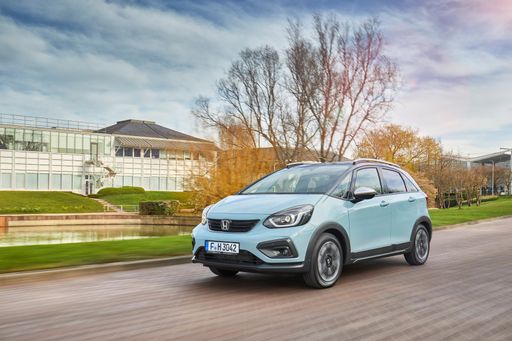
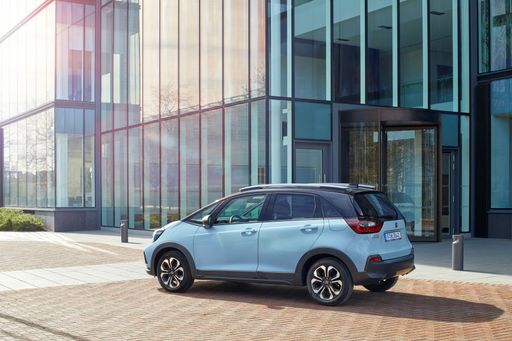
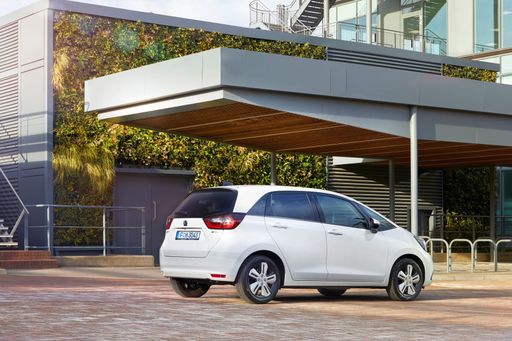
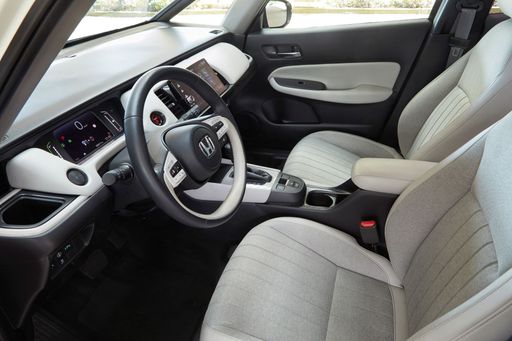
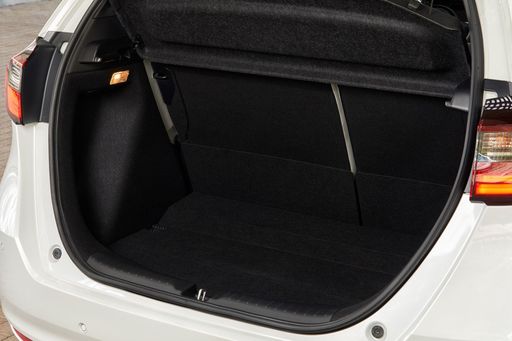
Nissan Qashqai
The Nissan Qashqai blends practical, family-friendly packaging with SUV styling that refuses to shout, making it a sensible and dependable choice for everyday life. It’s comfortable to live with, economical on the road, and neatly equipped enough to feel modern without ever feeling precious — perfect if you want crossover versatility without the drama.
details

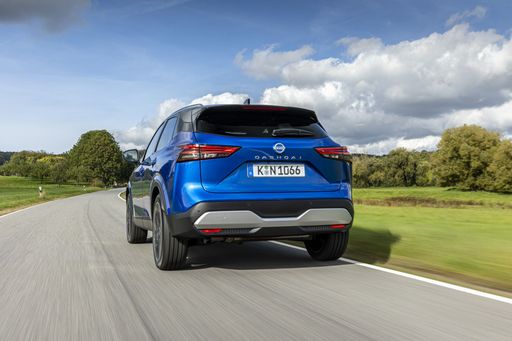


Costs and Consumption |
|
|---|---|
|
Price
23100 - 26700 £
|
Price
29600 - 39900 £
|
|
Consumption L/100km
4.5 - 4.8 L
|
Consumption L/100km
4.5 - 6.8 L
|
|
Consumption kWh/100km
-
|
Consumption kWh/100km
-
|
|
Electric Range
-
|
Electric Range
-
|
|
Battery Capacity
-
|
Battery Capacity
-
|
|
co2
102 - 108 g/km
|
co2
102 - 154 g/km
|
|
Fuel tank capacity
-
|
Fuel tank capacity
55 L
|
Dimensions and Body |
|
|---|---|
|
Body Type
Hatchback
|
Body Type
SUV
|
|
Seats
5
|
Seats
5
|
|
Doors
-
|
Doors
5
|
|
Curb weight
1302 - 1321 kg
|
Curb weight
1420 - 1665 kg
|
|
Trunk capacity
304 L
|
Trunk capacity
479 - 504 L
|
|
Length
-
|
Length
4425 mm
|
|
Width
-
|
Width
1835 mm
|
|
Height
-
|
Height
1625 mm
|
|
Max trunk capacity
-
|
Max trunk capacity
1422 - 1447 L
|
|
Payload
369 - 388 kg
|
Payload
466 - 520 kg
|
Engine and Performance |
|
|---|---|
|
Engine Type
Full Hybrid
|
Engine Type
Petrol MHEV, Full Hybrid
|
|
Transmission
Automatic
|
Transmission
Manuel, Automatic
|
|
Transmission Detail
CVT
|
Transmission Detail
Manual Gearbox, CVT, Reduction Gearbox
|
|
Drive Type
Front-Wheel Drive
|
Drive Type
Front-Wheel Drive, All-Wheel Drive
|
|
Power HP
122 HP
|
Power HP
140 - 205 HP
|
|
Acceleration 0-100km/h
9.4 - 9.7 s
|
Acceleration 0-100km/h
7.6 - 10.2 s
|
|
Max Speed
-
|
Max Speed
170 - 206 km/h
|
|
Torque
253 Nm
|
Torque
240 - 330 Nm
|
|
Number of Cylinders
4
|
Number of Cylinders
3 - 4
|
|
Power kW
90 kW
|
Power kW
103 - 151 kW
|
|
Engine capacity
1498 cm3
|
Engine capacity
1332 - 1498 cm3
|
General |
|
|---|---|
|
Model Year
2025
|
Model Year
2025
|
|
CO2 Efficiency Class
C
|
CO2 Efficiency Class
E, C
|
|
Brand
Honda
|
Brand
Nissan
|
Is the Honda Jazz offered with different drivetrains?
The Honda Jazz is offered with Front-Wheel Drive.




